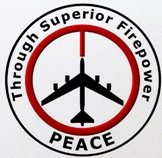...America is faced with two very hard paths forward in Iraq.
We can accept defeat and try to rebuild our position in the region while accommodating the painful possibility that these enemies of freedom in Iraq -- evil men, vicious murderers, and sadistic inflictors of atrocities will have defeated both the millions of Iraqis who voted for legal self government and the American people and their government.
Alternatively we can insist on defeating the enemies of America and the enemies of the Iraqi people and can develop the strategies and the implementation mechanisms necessary to force victory despite the incompetence of the Iraqi government, the unreliability of Iraqi leaders, and the interference of Syria and Iran on behalf of our enemies.
Both these paths are hard. Both involve great risk. Both have unknowable difficulties and will produce surprise events.
Both will be complicated.
Yet either is preferable to continuing to accept an ineffective American implementation system while relying on the hope that the Iraqi system can be made to work in the next six months.
There are three fundamental weaknesses in the current strategy.
First, the strategy relies on the Iraqis somehow magically improving their performance in a very short time period. Yet the argument for staying in Iraq is that it is a vital AMERICAN interest. If we are seeking victory in Iraq because it is vital to America then we need a strategy which will win even if our Iraqi allies are inadequate. We did not rely on the Free French to defeat Nazi Germany. We did not rely on the South Koreans to stop North Korea and China during the Korean War. When it mattered to American vital interests we accepted all the help we could get but we made sure we had enough strength to win on our own if need be.
President Bush has asserted that Iraq is a vital American interest. In January 2007 alone he has said the following things:But if we do not succeed in Iraq, we will leave behind a Middle East which will endanger America in the future.
[F]ailure in one part of the world could lead to disaster here at home. It's important for our citizens to understand that as tempting as it might be, to understand the consequences of leaving before the job is done, radical Islamic extremists would grow in strength. They would be emboldened. It would make it easier to recruit for their cause. They would be in a position to do that which they have said they want to do, which is to topple moderate governments, to spread their radical vision across an important region of the world.
If we were to leave before the job is done, if we were to fail in Iraq, Iran would be emboldened in its pursuit of nuclear weapons. Our enemies would have safe havens from which to launch attacks. People would look back at this moment in history and say, what happened to them in America? How come they couldn't see the threats to a future generation?
The consequences of failure are clear: Radical Islamic extremists would grow in strength and gain new recruits. They would be in a better position to topple moderate governments, create chaos in the region, and use oil revenues to fund their ambitions. Iran would be emboldened in its pursuit of nuclear weapons. Our enemies would have a safe haven from which to plan and launch attacks on the American people. On September the 11th, 2001, we saw what a refuge for extremists on the other side of the world could bring to the streets of our own cities. For the safety of our people, America must succeed in Iraq.
Iraq is a central component of defeating the extremists who want to establish safe haven in the Middle East, extremists who would use their safe haven from which to attack the United States, extremists and radicals who have stated that they want to topple moderate governments in order to be able to achieve assets necessary to effect their dream of spreading their totalitarian ideology as far and wide as possible.
This is really the calling of our time, that is, to defeat these extremists and radicals, and Iraq is a component part, an important part of laying the foundation for peace.
The inherent contradiction in the administration strategy is simple. If Iraq matters as much as the President says it does (and here I agree with the President on the supreme importance of victory) then the United States must not design and rely on a strategy which relies on the Iraqis to win.
On the other hand if the war is so unimportant that the fate of Iraq can be allowed to rest with the efforts of a new, weak, untested and inexperienced government then why are we risking American lives.
Both propositions cannot be true.
I accept the President’s analysis of the importance of winning in Iraq and therefore I am compelled to propose that his recently announced strategy is inadequate.
The second weakness is that the current strategy debate once again focuses too much on the military and too little on everything that has not been working. The one instrument that has been reasonably competent is the combat element of American military power. That is a very narrow definition and should not be expanded to include the non combat elements of the Department of Defense which also have a lot of difficulties in performing adequately.
…………………………………………………………………………….
The third weakness in the current strategy is its inability to impose war time decision making and accountability in Washington.
The interagency process is hopelessly broken.
Gingrich then lists key steps for victory. I think that they all are important, but I particularly like these:
…………………………………………………………………………….
5. Establish a War Cabinet which will meet once a week to review metrics of implementation and resolve failures and enforce decisions. The President should chair the War Cabinet personally and his deputy chief of staff for Iraq implementation should prepare the agenda for the weekly review and meeting.
6. Establish three plans: one for achieving victory with the help of the Iraqi government, one for achieving victory with the passive acquiescence of the Iraqi government, one for achieving victory even if the current Iraqi government is unhappy. The third plan may involve very significant shifts in troops and resources away from Baghdad and a process of allowing the Iraqi central government to fend for itself if it refuses to cooperate.
7. Communicate clearly to Syria and Iran that the United States is determined to win in Iraq and that any further interference (such as the recent reports of sophisticated Iranian explosives being sent to Iraq to target Americans) will lead to direct and aggressive countermeasures.
8. Pour as many intelligence assets into the fight as needed to develop an overwhelming advantage in intelligence preparation of the battlefield.
9. Develop a commander’s capacity to spend money on local activities sufficient to enable every local American commander to have substantial leverage in dealing with local communities.
Read the whole thing. There is some hope.

















No comments:
Post a Comment